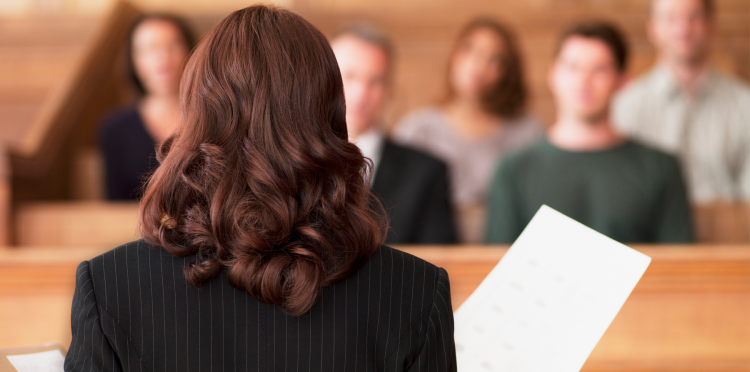One of the most important jobs in the legal system is that of an expert witness. Judges, juries, and even lawyers don’t always have the specialised knowledge that courts need. Expert witnesses help make sense of complicated topics that might decide the outcome of court disputes. They can be medical experts, engineers, financial analysts, or digital forensics experts. But to give expert evidence, you need more than just knowledge of the subject. In order to present their knowledge in a way that is both believable and legally sound, experts need to undergo expert witness training.
Expert witnesses may be the best in their fields, but the court system is considerably different from their normal work surroundings. In court, you need to be able to communicate clearly, follow the rules exactly, and handle tough cross-examination. Even the best professionals might fail when they are under this kind of pressure without expert witness training. Training is the most important thing to do to make sure that knowledge isn’t lost in translation and that proof has the effect it was meant to have.
One of the most important things you learn in expert witness training is how to explain technical knowledge clearly. An engineer or medical consultant may be used to talking to other professionals in technical terms, but a court audience may not have the same level of knowledge. Training for expert witnesses helps professionals learn how to convey ideas in a way that is both correct and easy to comprehend, without using jargon and making the evidence clear. The ability to simplify without losing accuracy might make the difference between a convincing testimony and one that confuses or turns off the people who have to make a judgement.
Writing reports is another important part of expert witness training. People typically look closely at expert findings before a matter even gets to court. They have to follow the law and be fair, clear, and organised. A report that is badly written might hurt its credibility and may even be thrown out by the court. Training helps experts write reports that can stand up to scrutiny. It makes sure that the findings are based on facts and that the report respects the norms for expert evidence. This organised way of producing reports lowers the chance of mistakes or unclear language that the other side could use against you.
For an unskilled expert witness, cross-examination is one of the most scary things that can happen. Because court cases are adversarial, lawyers will often question every part of an expert’s testimony, and they may do so forcefully. Training for expert witnesses gets experts ready for this kind of situation by teaching them how to stay calm under pressure, answer questions directly, and not get caught up in speculation or exaggeration. Training helps specialists stay unbiased and trustworthy, even when they are being questioned hard.
becoming fair is a big aspect of becoming an expert witness. An expert is not there to support one side like a regular witness. Instead, they are there to help the court make an informed conclusion. Expert witness training teaches specialists how to stay objective in both their reports and their testimony, which is very important. This focus on being fair not only protects the expert’s reputation, but it also safeguards the integrity of the legal process by making sure that their evidence is acknowledged in future instances.
Along with teaching participants how to testify in court, expert witness training also teaches them about the legal system they will be working in. A lot of experts don’t know the rules of evidence, the duties that civil and criminal procedure imposes, or the special requirements of professional standards of practice. Training fills this gap by teaching people what the expert’s duties are to the court, what the requirements of admissibility are, and what actions need to be taken in a lawsuit. This legal foundation makes sure that specialists can do their jobs well without accidentally breaking the rules.
Expert witness training has an effect on the legal system as a whole in addition to boosting individual performance. Experts that are well-trained give clearer, more dependable, and easier-to-understand evidence to people who are making decisions. This lowers the chance of miscarriages of justice that happen when technical material is not presented well or is not comprehended. Legal professionals and judges can also operate more efficiently when they know that the evidence given fulfils the requisite standards. This is because trained experts provide consistency.
For professionals, taking expert witness training can also help them go up in their careers. If you are known as a skilled and capable expert witness, you may be able to work on high-profile or complicated cases. It shows that you care about both your professional skills and the fairness of the legal system. Many specialists say that training makes them more confident, which lets them do legal work with the same level of confidence they have in their respective professions.
Training for expert witnesses is not something that happens once; it is a continuing process. Laws change, court procedures change, and the standards for experts keep becoming better. To stay competent in this capacity, it is important to take refresher courses and keep learning. Experts need to stay up with the latest developments in courtroom practice, just like they do with their technical knowledge. Ongoing training helps this growth by making sure that experts can keep up with changing legal requirements and still be effective in court.
Beyond the courtroom, expert witness training has advantages. The skills learnt can help people talk to each other better in a professional setting. Experts generally believe that being able to make complex knowledge easier to understand, write concise reports, and stay calm when being questioned are useful skills in academic, corporate, or consulting environments. Training can enhance professional activity in its entirety, rather than being limited to the specific context of legal proceedings.
Some detractors say that training can’t substitute real competence, and this is correct. A lack of professional expertise or qualifications cannot be made up for with expert witness training. On the other hand, having experience isn’t enough if you can’t communicate it well in a legal setting. Training does not supplant expertise; instead, it enhances it, facilitating the use of specialised information in a manner that is believable, impartial, and beneficial to the court.
The ultimate goal of expert witness training is to help people get justice. Courts are responsible for settling disagreements fairly and correctly, which is often difficult because the problems are quite complex. Without professionals who can connect specialised knowledge with the legal process, there is a big chance of misunderstanding or misrepresentation. Training gives specialists the confidence and integrity they need to do this job well, making sure that their work really helps bring about justice.
People don’t just judge expert witnesses on how accurate their knowledge is; they also judge them on how they communicate, test, and understand that knowledge. Expert witness training is essential since it equips specialists for the distinct demands of the courtroom, improves the clarity of their reports, and fortifies their impartiality. Training protects the expert’s reputation and the fairness of the legal procedure at the same time. As court cases get more complicated, the importance of expert witness training becomes especially evident. It is an important part of how modern justice works.











